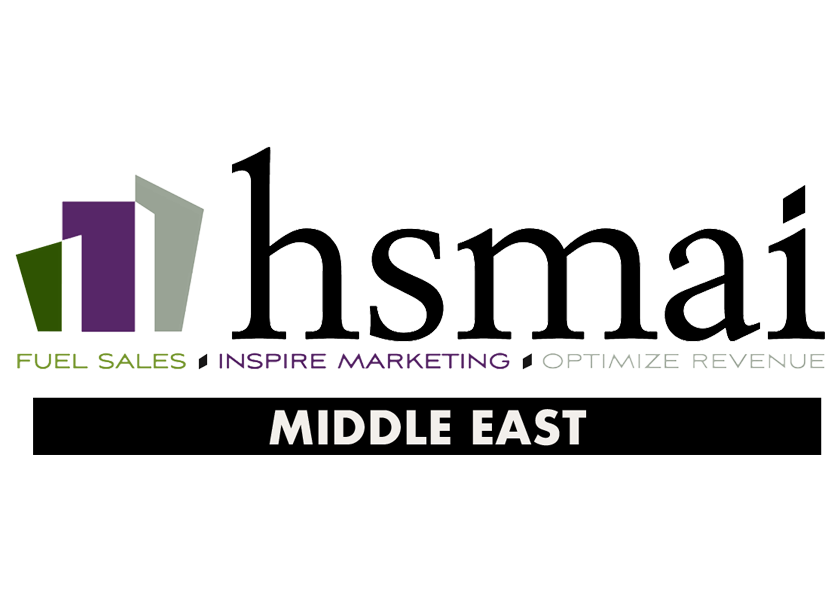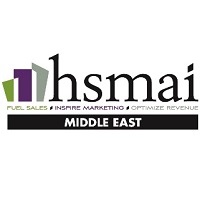To better understand the state of the industry, Kristi White, V.P. product management at Knowland spoke to HSMAI ME event attendees about asset protection and particularly why it is important to invest in your sales teams. She explored some of the recent numbers that show where Dubai sits in today’s market today in conjunction with the rest of the world.
By the Numbers
When we look at the month-by-month occupancy for Dubai since 2019, a few highlights stand out. Starting in July, the market ramped up steadily.
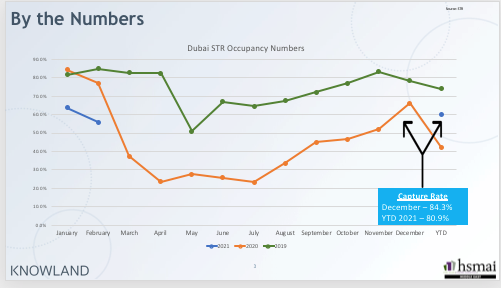
Another metric to be excited about with regards to Dubai specifically is the metric for Capture Rate. The metric is designed to understand how much demand has been re-captured from a subject period. It’s calculated by dividing the current occupancy by the occupancy from the same time frame in the subject period. For these purposes, 2019 was used as the subject period.
It’s an important metric to track because it lets you understand how close you are to recovery. In addition, you can calculate it for your hotel and then compare that metric to the market as a whole to see how you compare. Knowing this can be very important in understanding what your next steps might be.
With that said, in the month of December, the Dubai market recaptured 84.3% of 2019 demand. Additionally, year to date through February 2021 the market is already at 80% of 2019 demand. This is unique compared to the rest of the world and while there have been recent setbacks in the region, by comparison to the rest of the world, Dubai is leading the way.
In fact, this is even unique to the Middle East and Africa (MEA) region as a whole. As the data shows below, while there wasn’t quite the same climb starting in July like Dubai saw, by December the MEA region as a whole had only recaptured 62.6% of demand and year-to-date through February only 59.1% of demand was recaptured.
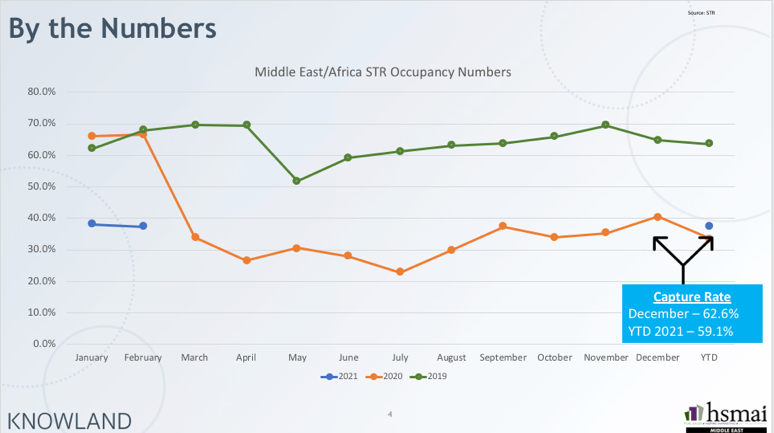
Asia Pacific, the first region to be disrupted, hasn’t hit the magical 80% capture metric yet. It peaked in December at 72.3% and year-to date through February has fallen back to only 52.5% capture.
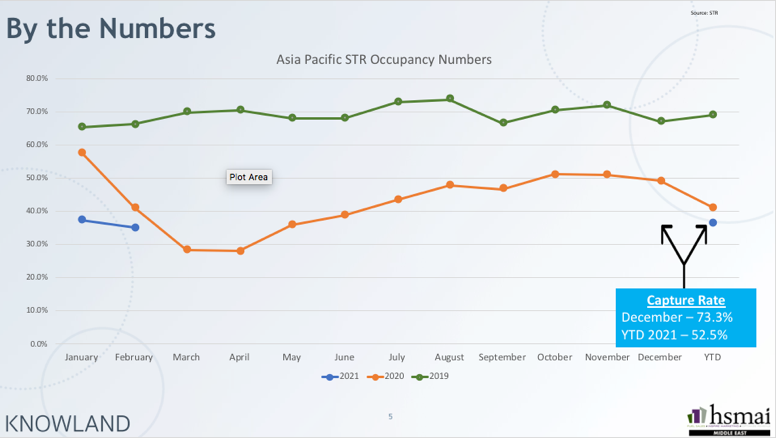
North America is the next market leaning into the recovery curve. Over the last four months, the market is picking up the pace. In December it recaptured 64.4% of its 2019 occupancy. There was a little drop off YTD through February. However, for the running 28 days, the region is at 51.1% (last week the market ran 54.8% with a capture rate of 79.0%).
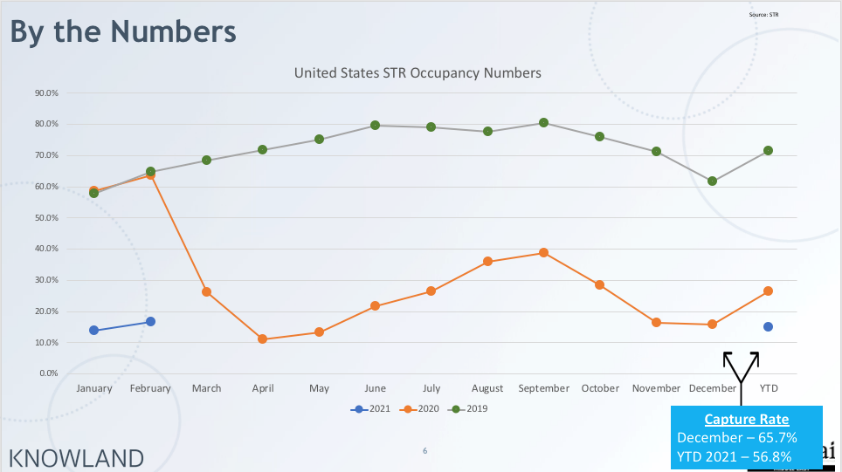
Finally, Europe is lingering behind the other regions. This region of the world fell further and harder than the other regions which will impact its recovery. The highest capture it’s experienced was in September at 48.3%. By December it fell to 25.7% and year-to-date through February, it was even lower at 20.9%. And now, many countries are looking at a fourth lockdown. These numbers aren’t likely to recover any time soon.
But for Dubai and the United States, recovery is well under way. Now, it’s time for hotels to start taking advantage of it. We’ve spent too long in hibernation.
Small but Mighty
Bigger doesn’t always mean better. Jeff Bezos, the founder of Amazon, had a personal belief that if a team couldn’t be fed with two pizzas, it was too big. The conventional wisdom that two heads are better than one — or the more brains you have on a problem the better — is completely wrong. People in smaller teams are far more personally productive. Why is that?
One-on-One Coaching: With smaller teams, the leader has the ability to spend more time with each seller to make sure they are focused on the right priorities. Those priorities will shift often during recovery, so keeping the team focused on what new opportunities exist will ensure you are ready to capitalize on them as they emerge.
Continued Learning: There is a chance your sales team might not have all of the training they need, so it is important to make sure they are sharpening their sales skills. This might include role-playing with them or having them role-playing with each other. It might also mean investing in the right tools to help with their education.
Use Technology: Smaller teams need to be able to do more with less. The right tools will allow them to target the right accounts, conduct meaningful follow-up and capture more wallet share. Additionally, it can help management better monitor progress.
Streamline the Sales Process: Playbooks are one of the most effective ways to present your hotel to prospective clients. These should be personalized to the segment and type of client. These will help with branding as well as assist newer, less-experienced salespeople stay on target.
Identify Barriers to Success: Too often salespeople get bogged down in administrative issues. Eliminate all of those and get them focused on selling because at the end of the day, being “busy” doesn’t result in a sale.
Create Effective Sales Plans: This goes back to the strategy of “plan your work and work your plan.” Each salesperson should have goals and prioritization strategies. These need to be revisited regularly and monitored for progress. It also comes back to using the right technology and having the tools you need to monitor and report on progress.
Celebrate the Wins: Small teams will likely be working harder. It’s important to celebrate their wins so as market dynamics begin to shift, the coming months may create a myriad of opportunities for your sales team. Those teams who are proactive with their prospecting will lead the way to recovery.
In times like these, the mere act of prospecting is just plain hard work. Encouragement will go a long way and setting expectations and communicating a solid game plan will be important in ensuring your team doesn’t get discouraged. As the world moves closer to coming together again, it will be important to maintain a solid plan, while keeping an eye on your hotel’s capture rate. Doing so will ensure everyone is on the same page while moving towards the end goal of profitability.
Learn more about recovery strategies and the role of sales training in a profitable recovery here.
